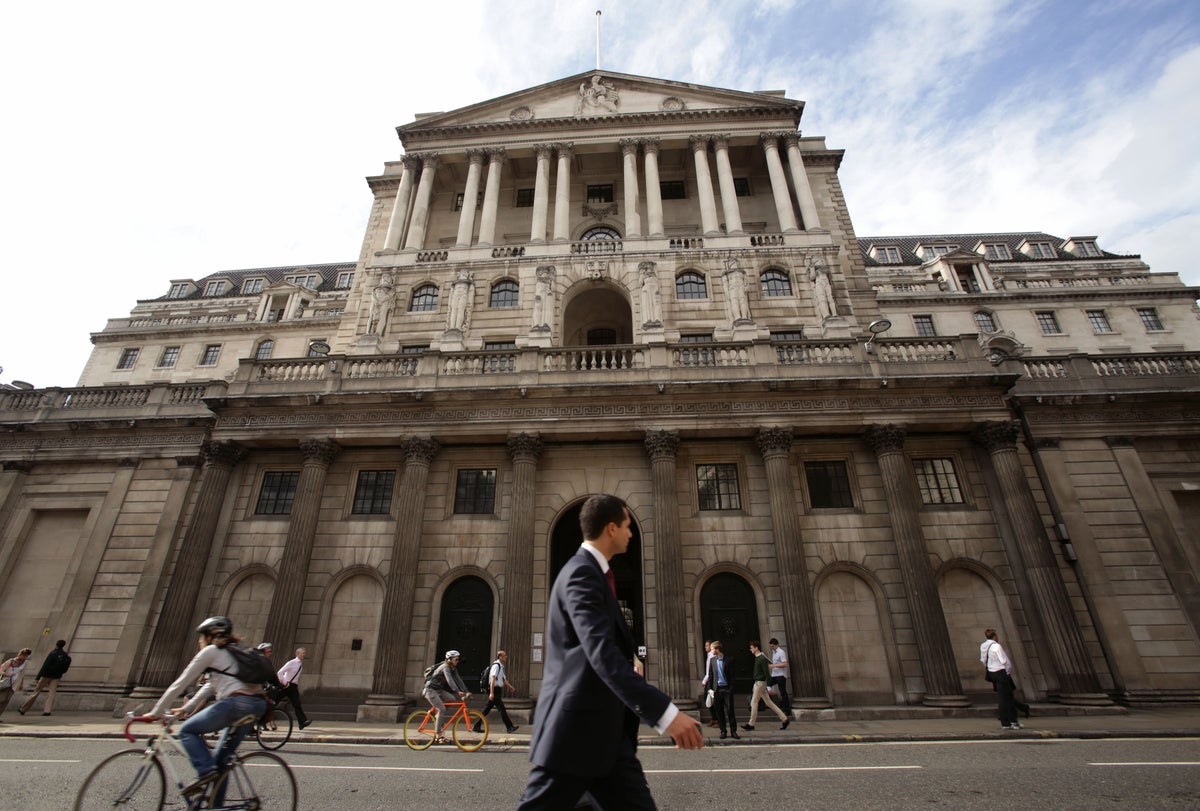
The Bank of England (BoE) defines inflation simply as a term used by economists to “describe the increase in prices over time”.
Rising costs in goods and services on the UK high street indicate that the value of the British pound is in decline, which in turn means a reduction in consumers’ purchasing power and therefore their quality of life, as they are discouraged from spending more than they can afford.
This in turn eats into national economic growth.
“A healthy economy needs to have a low and stable rate of inflation,” the central bank explains. “The government sets a target for how much prices overall should go up each year in the UK. That target is 2 per cent. It’s the Bank of England’s job to keep inflation at that target.
“A little bit of inflation is helpful. But high and unstable rates of inflation can be harmful. If prices are unpredictable, it is difficult for people to plan how much they can spend, save or invest.
“In extreme cases, high and volatile inflation can cause an economy to collapse. Zimbabwe is a good example. It experienced this in 2007-2009 when the price level increased by around 80 billion per cent in a single month. As a result, people simply refused to use Zimbabwean banknotes and the economy ground to a halt.”
The BoE sets monetary policy to exert control and prevent such situations arising, primarily through managing interest rates.
“Higher interest rates make it more expensive for people to borrow money and encourage them to save. That means that overall, they will tend to spend less,” the bank continues.
Cost of living: How to get help
The cost of living crisis has touched every corner of the UK, pushing families to the brink with rising food and fuel prices.
- The Independent has asked experts to explain small ways you can stretch your money, including managing debt and obtaining items for free.
- If you need to access a food bank, find your local council’s website using gov.uk and then use the local authority’s site to locate your nearest centre. The Trussell Trust, which runs many food banks, has a similar tool.
- Citizens Advice provides free help to people in need. The organisation can help you find grants or benefits, or advise on rent, debt and budgeting.
- If you are experiencing feelings of distress and isolation, or are struggling to cope, The Samaritans offers support; you can speak to someone for free over the phone, in confidence, on 116 123 (UK and ROI), email jo@samaritans.org, or visit the Samaritans website to find details of your nearest branch.
“If people on the whole spend less on goods and services, prices will tend to rise more slowly. That lowers the rate of inflation.”
In Britain, inflation is measured monthly by the Office for National Statistics (ONS), which checks the price of 700 typical goods and services that UK consumers regularly spend money on, from bread and milk to cars and foreign holidays.
The total price of a “basket” of such items is calculated to give us the Consumer Price Index (CPI), which is compared to its equivalent a year earlier to reveal how much the rate of inflation has risen over the past 12 months.
In its most recent announcement on 19 October, the ONS revealed that the UK’s rate of inflation rose to 10.1 per cent for the 12 months to September, the same level it was at in July, which had been followed by a slight drop to to 9.9 per cent in August.
That means Britain‘s rate of inflation stands at a 40-year high, putting more pressure on families struggling with the cost of living crisis.
“After last month’s small fall, headline inflation returned to its high seen earlier in the summer,” ONS director of economic statistics Darren Morgan said.
“The rise was driven by further increases across food, which saw its largest annual rise in over 40 years, while hotel prices also increased after falling this time last year.
“These rises were partially offset by continuing falls in the costs of petrol, with airline prices falling by more than usual for this time of year and second-hand car prices also rising less steeply than the large increases seen last year.
“While still at a historically high rate, the costs facing businesses are beginning to rise more slowly, with crude oil prices actually falling in September.”
In its most recent corrective – a day before former chancellor Kwasi Kwarteng’s disastrous “mini-Budget”, which has since been rolled back – the BoE duly raised interest rates on 22 September by another 0.5 per cent to 2.25 per cent in the hope of reining in that high rate of inflation.
But George Lagarias, chief economist at accountancy firm Mazars, has said he believes that UK inflation will not drop off significantly for some time.
“Higher energy prices for all the previous months have fully fed into most supply chains and it will take months of lower oil for end-consumer prices to meaningfully come down again. Inflation may well remain a central theme until at least the end of the year,” he said.
“However, input costs have begun to drop and we should see this feeding into general prices eventually.”
Meanwhile, Eurozone inflation rose to 10 per cent in September from 9.1 per cent in August, still high but not quite so severe as Britain’s, despite the EU facing many of the same challenges as the UK.






